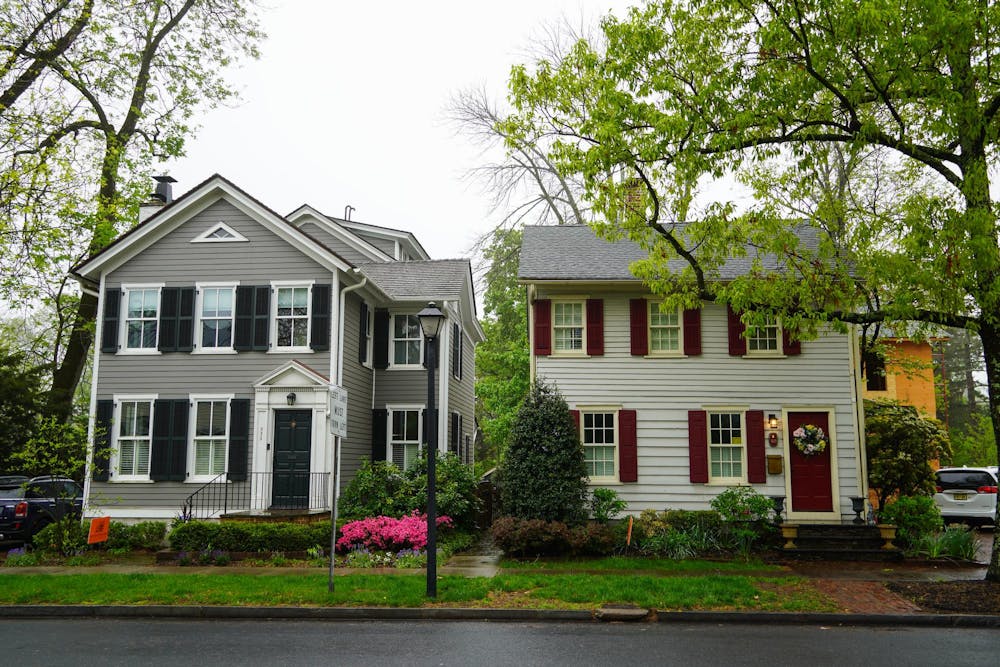Higher rents and eviction proceedings — even those that do not result in evictions — are linked to increased mortality, according to a new study by researchers at the University’s Eviction Lab and the Census Bureau.
Nick Graetz is the lead author of the paper and a postdoctoral research associate at the Eviction Lab, a group of researchers led by Professor Matthew Desmond studying eviction, housing insecurity, and poverty.
“We’ve never truly known who gets evicted nationwide, or what happens to folks following an eviction,” Graetz said in an interview with The Daily Princetonian.
The study builds off of the Eviction Lab’s existing database of eviction court filings and records going back to 2000, a first-of-its-kind dataset that aims to capture the scope of evictions nationwide. Using names and addresses, Graetz and his fellow researchers linked 38 million eviction records to census data, allowing them to track mortality over a 20-year period.
“It’s kind of strange that we as researchers at a university had to undertake this at all. In a lot of ways, this is something that government should be keeping track of,” Graetz said, citing a wealth of information collected on homeowners and mortgages, but not for renters.
The study ultimately found that evictions were associated with a 40 percent increase in mortality risk. Even the threat of an eviction (as shown by the initiation of court proceedings) was associated with a 19 percent increase in mortality risk. These associations remained when controlling for age, race, and gender.
“[When] we think about eviction, we’re often thinking about those folks who are actually evicted from their homes, but there’s this much larger system which is the total group who’s threatened by eviction, which are all individuals who are ever filed against in housing court, even if they retain their house,” Graetz told the ‘Prince.’
The study also examined mortality in relation to rent burden, or monthly housing costs as a percentage of income. Using a baseline rent burden of 30 percent — long the standard ceiling for what households should be spending on housing — the researchers found that a rent burden of 70 percent was associated with 12 percent higher mortality. This effect was particularly pronounced for men, especially Hispanic and Black men.

Graetz and the other researchers also examined the impacts of changes in rent burden, matching individuals in the 2000 census to respondents to the 2008–2012 American Community Survey, an annual questionnaire conducted by the Census Bureau to a selected sample of Americans. They found that a 10-point increase in rent burden was associated with 8 percent higher mortality, while a 20-point increase was associated with 16 percent higher mortality.
“That 20-point increase in rent burden sounds really big to people,” Graetz said. “But we found that that’s a really common experience, especially for folks who are renting through their 40s, 50s, 60s.”
The paper comes in light of the increasing gap between rent costs and renters’ incomes: between 2009 and 2021, the ratio of rent to income rose in 46 out of the 50 most populous metropolitan areas in the United States. Previous studies have concluded that rising rents harm both mental and physical health, increasing the risk of chronic diseases and anxiety.
“From tenant advocates and tenant unions and folks who are working with renters … we had an idea that this was going to be bad for people’s health,” Graetz said. “But I think when we did this data task and put the numbers together, it was really shocking, the magnitude of that relationship.”

The study did not include the effects of the pandemic, as the data Graetz and the other researchers used ended in 2019. However, Graetz says they plan to examine the impacts of many COVID-era policies like emergency rental assistance and eviction moratoria that have since lapsed or are facing expiration.
“Through this collaboration with the Census Bureau and the work we’re producing here, [we are] trying to build the evidence base that those kinds of policies shouldn’t really be seen as emergency housing policies,” he said. “[These are] policies that need to be in place to shift the housing crisis that’s been unfolding for the last 50 years.”
Graetz also discussed examining landlords and the causes of rent increases for future research.
“People aren’t raising their own rents or evicting themselves, so the other side of the coin here is, who are the folks upholding and managing this system, often profiting from the system?” he asked.
“We need to think about creating a country where quality housing is affordable for everyone,” he added.
Miriam Waldvogel is an associate News editor for the 'Prince.'
Justin Tam is a staff News writer for the 'Prince.'
Please send any corrections to corrections[at]dailyprincetonian.com.








